QuestionI have had my red point siamese (not pure bred, not certain what other type he is, perhaps Burmese) for 12 years now. He has been a wonderful companion up to about 2 years ago. He began pooping first on my bed (husband's side), then proceeded to poop on a spare bed downstairs, in the middle of the carpeted family room floor downstairs, on the couch upstairs on his blanky, or the main living room floor. There are two litter boxes in the laundry room along with their food and water dishes. Both cats (siamese and domestic short hair) have got along well the past 12 years and keep themselves company while my husband and I work all day. After numerous vet appointments, this cat is 100% healthy, stools are healthy, no gum disease present (just had a few teeth pulled), and all organs (according to the bloodwork) are healthy (I should note my other cat is 13 years old and no problems with her). I have implented another litter box upstairs and try to keep my bedroom door closed (much to his and her disappointment as they love to cuddle together on that bed each day). Have set up a little bed for the two of them in my office upstairs (along with that 3rd litter box). As his behaviour has not changed, in fact is becoming more frequent, I have now changed the litter (thought maybe it was hurting his bum), with no change in results. He will even poop on my bed while I am sleeping (just this morning came in for a cuddle, my husband left the door open, and I caught him just in time; he then proceeded to poop at the bottom of the stairs, just feet away from the two litter boxes, on the carpet). What started this behavour, I think, is when my husband began renovations on this house, and the banging for those few days set him off. This is my second relationship since I have had this cat, both men have been very pleasant towards him and he does sit on my husbands lap every evening as I arrive home later than he does. The cat will immediately come over to my lap by the time I do sit down. My life has become more active within the last two years, work each day and have evening commitments that keep me from sitting down with this cat until later in the evening. His first 10 or so years of life was spent with me each evening (kids are involved in a part time situation only, they are 13 and 18 now). The vet says this is strictly behavioural issues; I am at my wits end and do not know what else to implement. Today I am moving the litter box downstairs to the main area in hope that will encourage stools to be deposited where they should be. What am I missing here????? Please and thank you.
AnswerTracy,
The cat's behavior could be because you are not spending as much time as you did with them. But I don't think that is it.
My guess is that the behavior is age-related. Your 12 year old is approximately 64 years old, and your 13 year old is approximately 68 years old in human years.
At that age things start going out. He may have arthritis which is causing him pain, which would make it hard to get in and out of the litterbox, or up and down the stairs. He may also be losing some control of his bowels, or the ability to hold it, and can't get to the litterbox in time. Try some puppy pee-pads next to the litterbox and see if he uses those.
Geriatric cats can also get a form of kitty Alzheimers. That can make them do some bizarre things, like forgetting where the litterbox is.
Give the cat LOTS of reassurance and love. Don't ever get upset at the cat for getting old, and any behavior or health related issues that results from it. Their behavior can be just as frustrating for them as it is for you.
You should take her to a vet that is knowledgeable about geriatric cats and their conditions (not all vets are knowledgeable about elderly cats) for an "older cat checkup" to check the function of his kidneys, thyroid, liver, etc. If he has arthritis he can be given pain medication to ease any pain.
Being prepared and knowledgeable about elderly cats will make things easier for the cat and for you. I am including some very good links about elderly cats.
(Copy and paste, or type, the whole links into your address bar):
http://www.sniksnak.com/resources/geriatric.html
http://www.messybeast.com/towards-end.htm
http://www.2ndchance.info/oldcat.htm
I hope this helps.
Tabbi

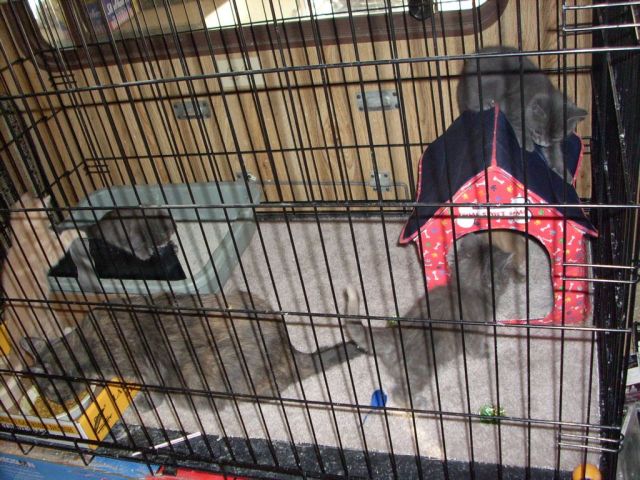 URGENT!! Help me please
QuestionHi,
I have a female persian kitten (4 months o
URGENT!! Help me please
QuestionHi,
I have a female persian kitten (4 months o
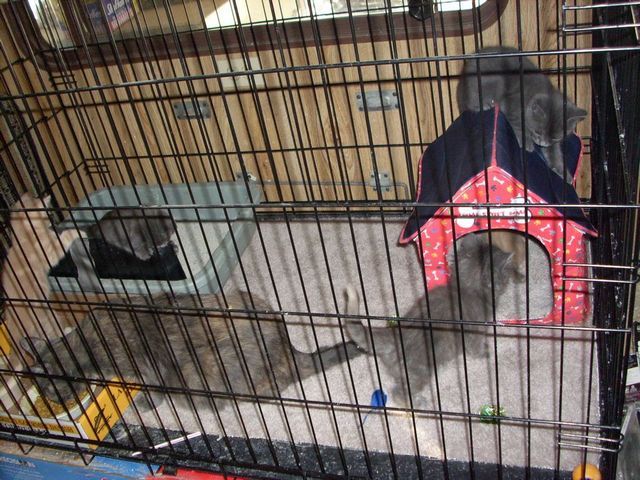 Rescued declawed cat (abandoned?)
QuestionQUESTION: Dear Tabby,
Just r
Rescued declawed cat (abandoned?)
QuestionQUESTION: Dear Tabby,
Just r
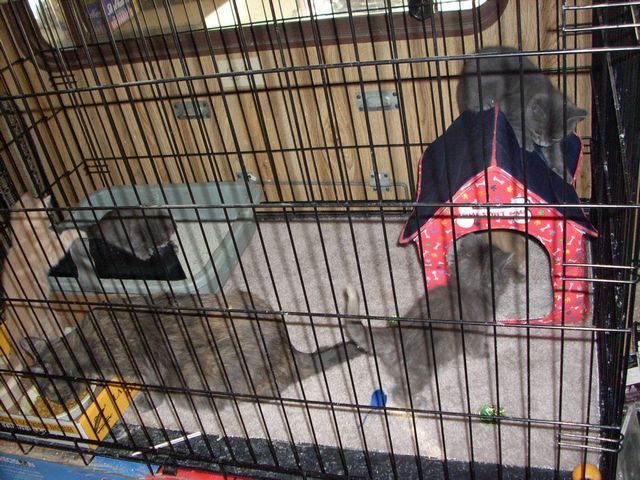 Blending adult kitties
QuestionWe had 5 cats. 2 females, and 2 long haired mal
Blending adult kitties
QuestionWe had 5 cats. 2 females, and 2 long haired mal
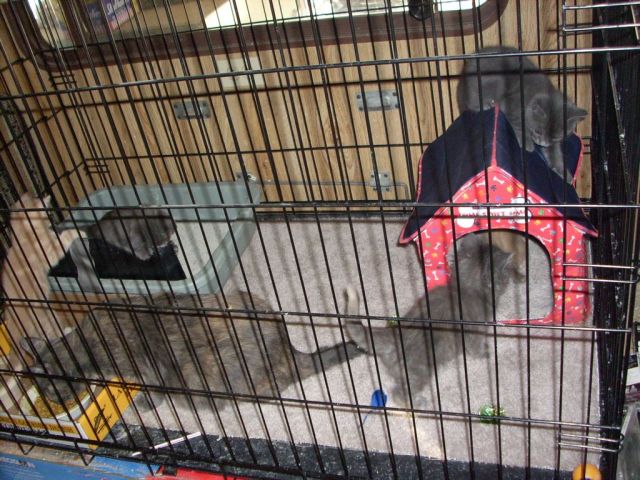 New cat...
QuestionWe brought home a new 5 month old male kitten w
New cat...
QuestionWe brought home a new 5 month old male kitten w
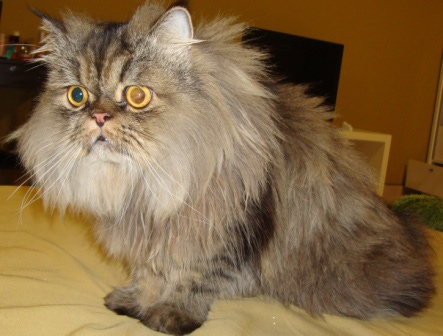 cat scared of everything
Question
Hugo Hugo
Hi,
I have a 2.5 years
cat scared of everything
Question
Hugo Hugo
Hi,
I have a 2.5 years